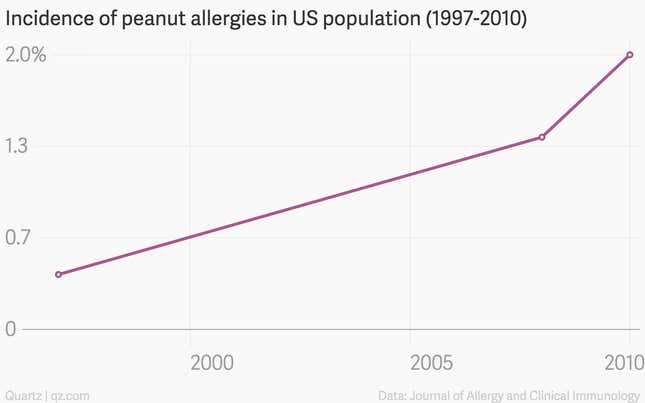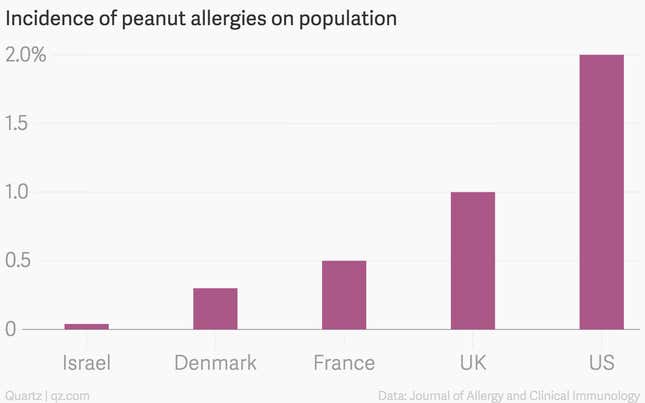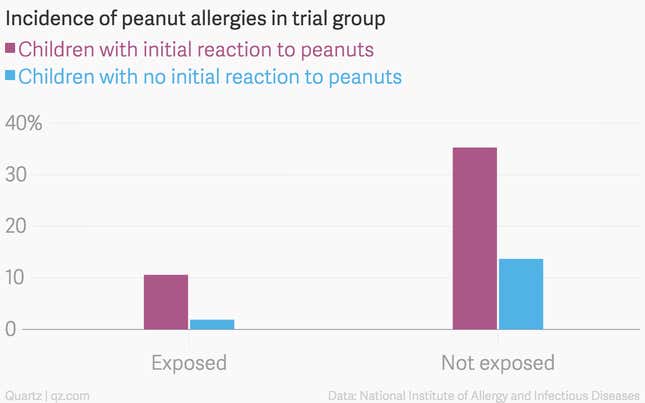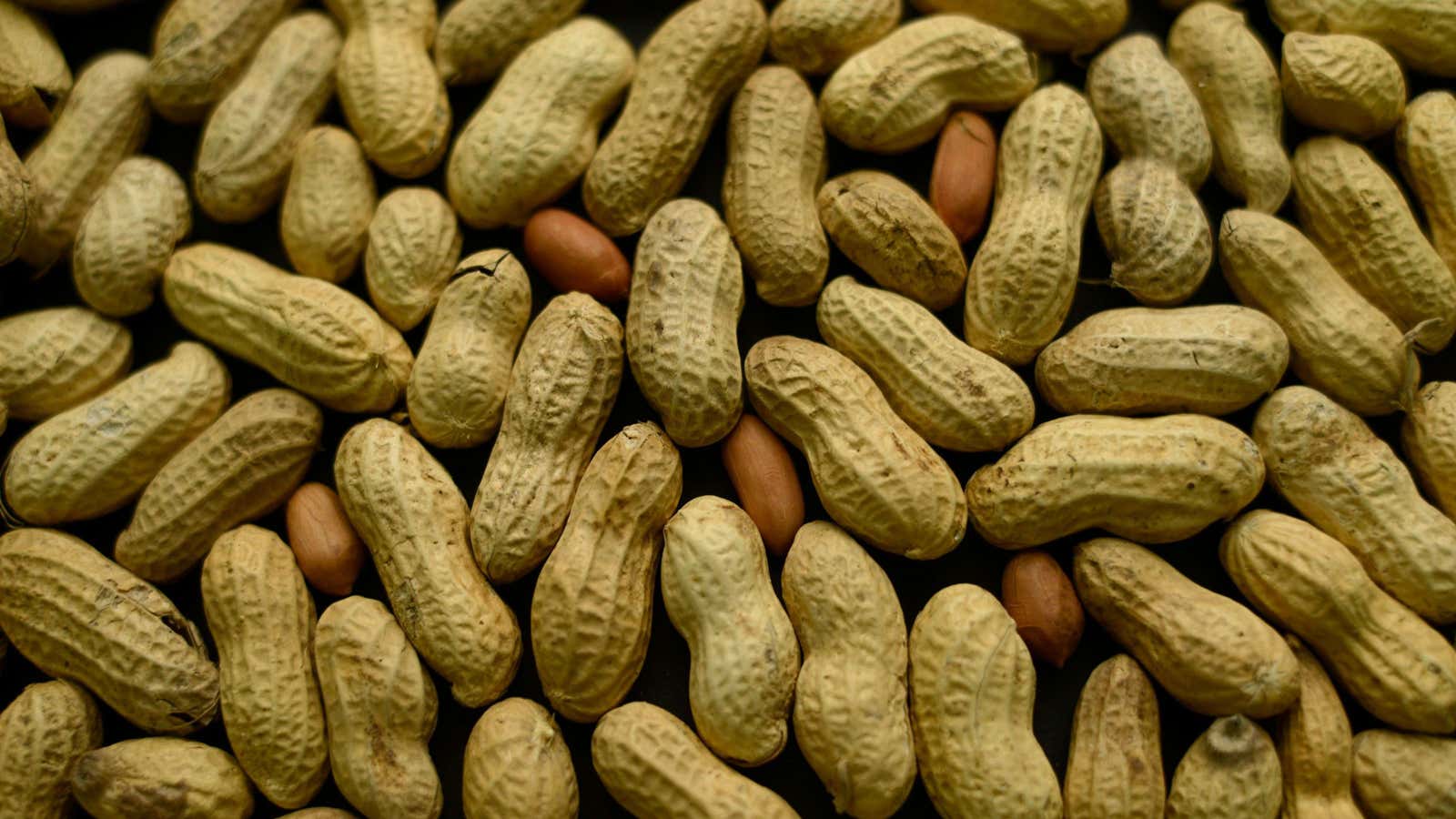Peanut allergies are on the rise in the US—they have more than doubled since 1997, affecting at least 2% of the US population (the latest available data is from 2010).

Amongst the eight foods that cause 90% of food allergies (milk, soy, eggs, wheat, peanuts, tree nuts, fish and shellfish), peanuts are also the most deadly, causing the majority of deaths for food allergies (200 a year in the US). And they cause an estimated 15,000 emergency room visits of the 30,000 due to food allergy in the US.
In America, the sensitivity to peanuts is particularly pronounced compared to the rest of the world. There are no conclusive results on why that is, though theories say it might be the way peanuts are processed in the US or their prevalence in the diet.

Since peanut allergies affect primarily children (about 20% of whom outgrow the allergy), parents find them particularly terrifying. But research published in The New England Journal of Medical Science may offer them a remarkably straightforward solution: It appears that feeding your kids peanuts may protect them from being allergic to them.
In a trial, children aged between 4 and 11 months with a high risk of developing a peanut allergy were divided into two cohorts, both of which included kids who initially tested negative to the allergy and kids who tested positive. One of the two groups avoided exposure to peanuts, while the other was fed at least six grams of peanut protein per week, distributed in three or more meals per week, until they turned 5 years old. The incidence of peanut allergies was re-tested in the two cohorts.
The results were pretty striking:

Amongst the kids who had shown a reaction to peanuts at the start of the trial and were exposed to peanuts during the following five years, only 10.6% developed an allergy, versus 35.3% of those who had not been exposed. Amongst the children who hadn’t shown an initial reaction to peanuts, the results are even more significant: Only 1.9% of those who were fed peanuts developed an allergy, versus 13.7% of those who weren’t.
The study’s conclusion is pretty clear:
The early introduction of peanuts significantly decreased the frequency of the development of peanut allergy among children at high risk for this allergy and modulated immune responses to peanuts.
